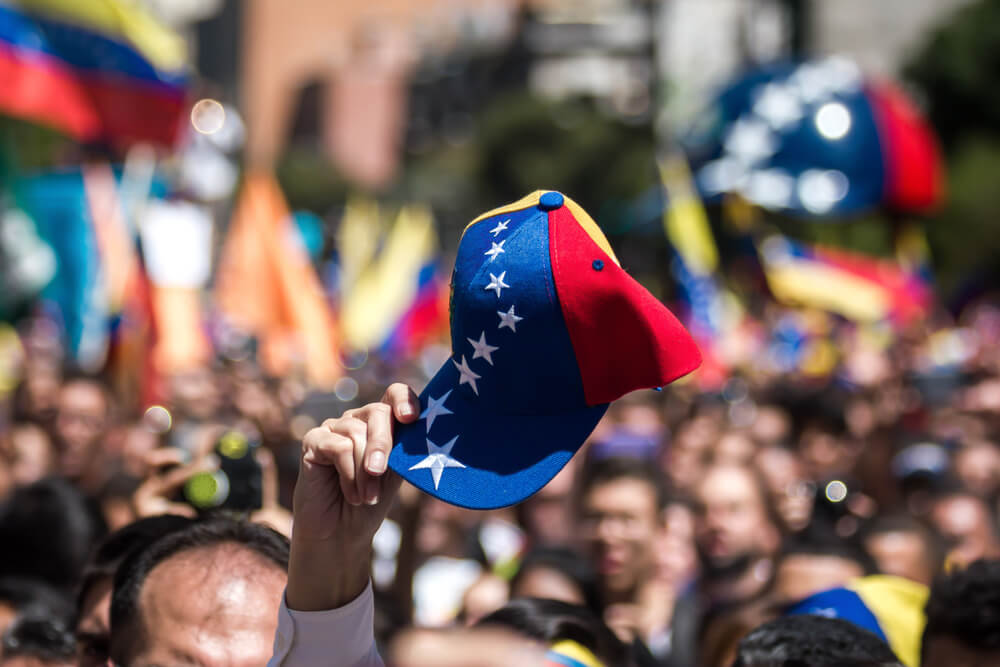A month after declaring victory in Venezuela's presidential election, Nicolás Maduro is attempting to project toughness in the face of opponents both domestic and international who accuse him of stealing the election.
Maduro, like his autocratic counterparts around the world, has resolved the post-election crisis by force, tightening repression, arresting political opponents, and refusing international demands to step down.
It is "an international hysteria," said Vice President of Venezuela Delcy Rodriguez, regarding the refusal of a large number of countries, including many from Latin America, to recognise the results according to which Maduro won with 52% of the vote.
Since election day, the Maduro regime has intensified its repression in response to the opposition's mass protests, according to which its candidate Edmundo González won convincingly.
Close to 2,000 of Maduro's opponents have been arrested in the past month, and many are in hiding, including opposition leader María Corina Machado.
The public prosecutor accused two opposition leaders of "usurpation of functions," spreading fake news, criminal association, and inciting rebellion.
Are there cracks in the repressive apparatus?
The government deployed all its repressive tools, including the judiciary, police, army, and security services, to defend Maduro's disputed victory.
At Maduro's request a week ago, the defence block also included the Supreme Court, which ended the election-related legal proceedings by confirming Maduro's victory.
Although the levers of repression work tightly and in sync, sudden cracks often occur in regimes like Venezuela's
Although the levers of repression work tightly and in sync, sudden cracks often occur in regimes like Venezuela's, causing the entire structure to collapse rapidly.
However, the international pressure that frequently created cracks in such structures has not yet produced visible results in today's Venezuela.
The circle of states that immediately recognised Maduro's victory predictably came down to former partners and authoritarian states, such as China, Russia, Iran, and Cuba, as well as friends from the region—Nicaragua, Bolivia, and Honduras.
The majority of Latin American governments did not recognise Maduro's victory and shared the US position that Edmundo González was the true victor.
The US reluctance
Despite not recognising Maduro's victory, the Washington administration stopped halfway, and it does not refer to Mr González as the elected president. Its pressure on Caracas is a combination of diplomatic demands to respect the opposition's results, followed by the threat of new sanctions against the Maduro regime.
However, the reach of sanctions as a long-term and most frequently used American means of pressure on Venezuela clearly has its limits.
Maduro and his establishment have been under varying levels of US sanctions for years, which has made them somewhat immune to that kind of pressure. The country's social and economic collapse, as well as the nearly 8 million Venezuelans who have fled, reflect the cost of such a relationship.
Additionally, the Venezuelan autocrat has experienced a model that suggests he could lift some sanctions if he demonstrates a willingness to engage in dialogue with the opposition.
 Maduro might make certain concessions to his political opponents in exchange for easing sanctions
Maduro might make certain concessions to his political opponents in exchange for easing sanctions
He might position himself similarly in the current post-election crisis and make certain concessions to his political opponents in exchange for easing sanctions, just as he did at the end of last year when he reached an agreement with the opposition on fair election conditions (the Barbados Agreement).
The dilemma facing Washington is that further tightening sanctions would push Maduro more strongly into the arms of Russia and China, thereby reducing its own chances of influencing the processes in Venezuela.
"For the Biden administration, the challenge lies in finding a balance between applying targeted, effective pressure on elites and preventing Venezuela from drifting further into Russia’s and China’s spheres of influence. Some in Washington fear that a return to ‘maximum pressure’ could drive Maduro closer to the United States’ geopolitical rivals," said Geoff Ramsey from the Atlantic Council.
Maduro is buying time
Similar to the US, the European Union is also reluctant to apply more decisive measures against the Maduro regime. After the recent meeting of EU chiefs of diplomacy, Josep Borrell, the outgoing High Representative of the EU for Foreign Affairs and Security Policy, declared that nearly all the Venezuelan state leadership figures, specifically 55, are already subject to sanctions, indicating that "they've already reached the limit."
Borrell is not hinting at new EU punitive measures against Maduro but rather observing the effects of the opposition's protests and the regime's eventual willingness to negotiate with them.
The reluctance of the most influential factors in the West to increase pressure, as well as the passage of time, make Maduro's position more comfortable day by day
The reluctance of the most influential factors in the West to increase pressure, as well as the passage of time, make Maduro's position more comfortable day by day and give him the impression that some new bargaining is possible in which he will be able to secure a relatively peaceful presidential mandate.
"The Venezuelan president’s stalling tactics over the past decade have been extraordinarily successful," said Oliver Stuenkel, associate of the Carnegie Endowment for International Peace and professor of international relations at the University of São Paulo, Brazil.
"The most likely scenario is that Maduro… will successfully dig in and possibly use largely symbolic negotiations with opposition figures to buy time until the international community moves on to the next crisis," said Prof. Stuenkel.